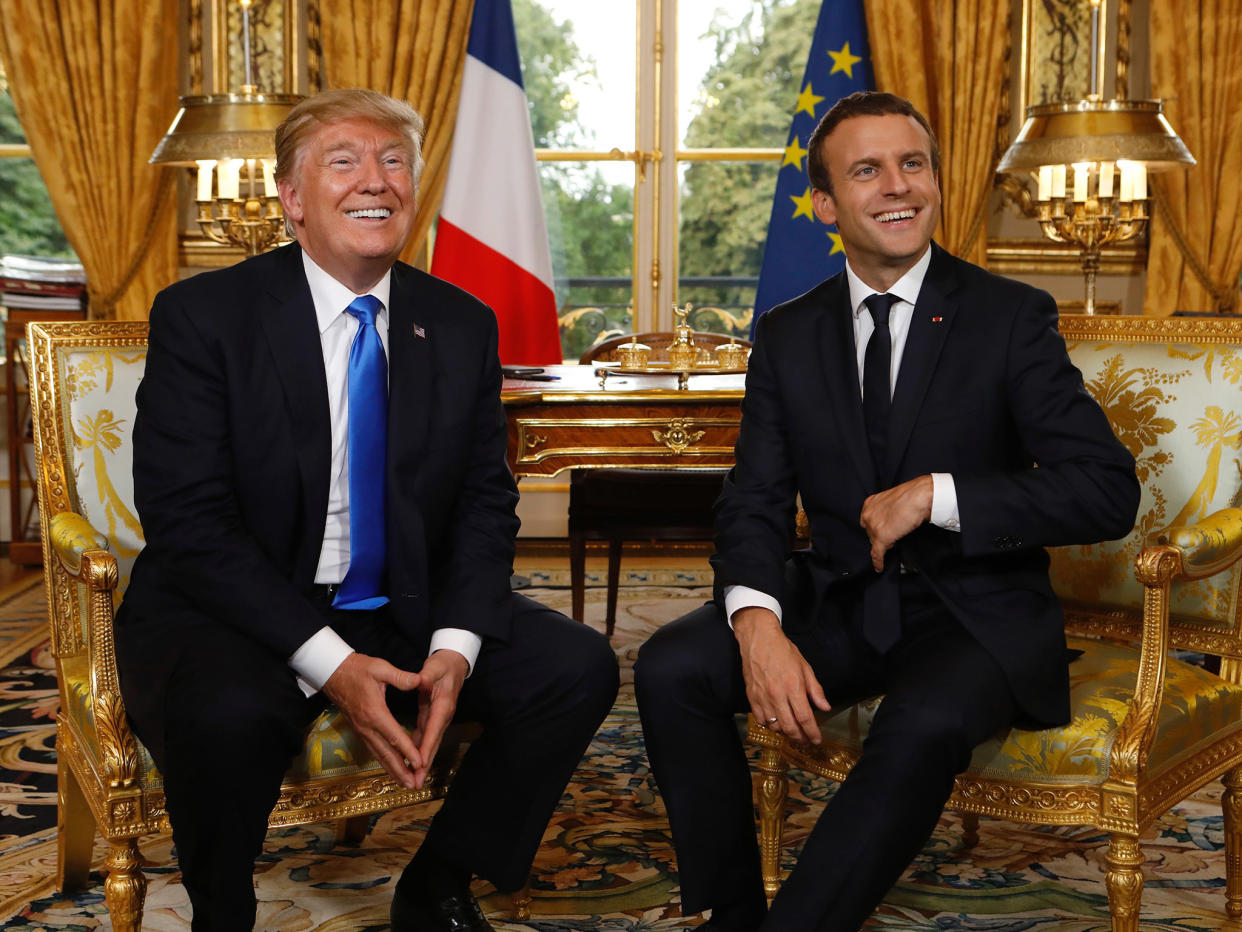US scientists fleeing Donald Trump head to France after Emmanuel Macron's call to ‘help make our planet great again’

Hundreds of climate scientists, including a number from the United States, have applied to work in France after the country’s president, Emmanuel Macron, appealed for them to come and help “make out planet great again”.
The slogan was a deliberate parody of the climate science-denying Donald Trump’s campaign slogan, “make America great again”.
Germany has announced it is to set up a similar scheme.
While most of the researchers applied for short sabbaticals, 154 were seeking to work in France for four or more years, Dr Anne Peyroche, chief research officer of the CNRS, a national research agency, told the journal Nature.
“Applications continue to come in every hour,” she said.
In June, Mr Macron said those disillusioned by Mr Trump’s dismissal of accepted science about climate change would discover a very different situation in France.
“To all scientists, engineers, entrepreneurs, responsible citizens who were disappointed by the decision of the president of the United States, I want to say that they will find in France a second homeland,” he said.
“I call on them: come and work here with us. To work together on concrete solutions for our climate, our environment. I can assure you, France will not give up the fight.
“I call on you to remain confident. We will succeed, because we are fully committed, because wherever we live, whoever we are, we all share the same responsibility: Make our planet great again.”
The French scheme, worth a total of about £53m, offers four-year grants worth up to about £1.3m. Officials were also headhunting some leading researchers, Dr Peyroche added. The 50 scientists given grants under the scheme will be announced towards the end of this year.
Ashley Ballantyne, a bioclimatologist at Montana University, is one of the applicants.
“There are very few funding opportunities in the United States that promote research on carbon-climate interactions at the global scale, so the fact this programme was looking for visionary thinking was appealing,” he told Nature.
A German fund, made up of £13m from the government and more money from research bodies, is also being created to attract climate scientists from overseas.

